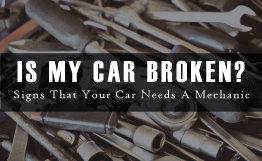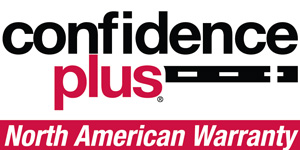Business Hours
- Monday - Friday
- BASHFORD AVE
7:30 AM - 4:30 PM
Phone: (502) 203-0454 - PRESTON HWY
7:00 AM - 4:00 PM
Phone: (502) 230-4279
AMERICAN BRAKE CENTERS INC.
(502) 203-0454 for Bashford Ave or (502) 230-4279 for the Preston Hwy location | 3435 Bashford Ave Ct Louisville, KY 40218
AUTONET TV
Oil Times are a-Changin' (Oil Change Synthetic)Posted June 30, 2024 6:24 AMWhen it comes to oil changes, things are really changing. Most newer vehicles require synthetic oil, and while it costs more than conventional oil, it doesn't need to be changed as often. When conventional oil was the only game in town, you changed your oil every 3,000 miles/5,000 km. But as technology in newer vehicles has rapidly changed, so has oil technology. Synthetics have been around since the seventies. Even though they start with a conventional oil base, they are engineered in a chemical processing plant with properties that allow them to keep your engine lubricated at very high temperatures. They are more uniform and consistent. Synthetic oil doesn't break down as easily, so it lasts longer than conventional oil. And synthetic oil can flow more easily, even in extremely low temperatures. As you can see, it has performance advantages at both temperature extremes. Generally, in recent years automakers have been shipping most of their vehicles with either synthetic oil or a synthetic blend. Blends are cheaper and have many of the advantages of synthetics. Another reason synthetic oil is being used in many newer vehicles is its ability to flow more easily improves efficiency. It's important to follow your vehicle manufacturer's recommendations when you have your oil changed, so our service adviser can see what options you have for your vehicle. Many newer vehicles come with specific recommendations for synthetic oil. If you live in an area with wide temperature extremes or do a lot of stop-and-go driving, synthetic oil can offer advantages. Older vehicles can do fine with conventional oil, but it will have to be changed more than synthetic oil. Also, if you have an older vehicle with more than 75,000 miles/120,000 km on it, it can be more prone to leak and burn oil. Some synthetic oils are designed to protect those high-mileage vehicles better than conventional oil, and yours may benefit. See what your service adviser thinks. American Brake Centers Inc. | ||
SearchArchiveJune 2019 (18)July 2019 (4) August 2019 (4) September 2019 (5) October 2019 (4) November 2019 (4) December 2019 (5) January 2020 (5) February 2020 (4) March 2020 (5) April 2020 (4) May 2020 (5) June 2020 (4) July 2020 (4) August 2020 (5) September 2020 (4) October 2020 (4) November 2020 (5) December 2020 (4) January 2021 (6) February 2021 (4) March 2021 (4) April 2021 (4) May 2021 (5) June 2021 (4) July 2021 (4) August 2021 (5) September 2021 (4) October 2021 (5) November 2021 (4) December 2021 (4) January 2022 (6) February 2022 (4) March 2022 (4) April 2022 (4) May 2022 (5) June 2022 (4) July 2022 (5) August 2022 (4) September 2022 (4) October 2022 (5) November 2022 (4) December 2022 (4) January 2023 (5) February 2023 (4) March 2023 (4) April 2023 (5) May 2023 (4) June 2023 (4) July 2023 (5) August 2023 (4) September 2023 (4) October 2023 (5) November 2023 (4) December 2023 (5) January 2024 (5) February 2024 (4) March 2024 (5) April 2024 (4) May 2024 (4) June 2024 (5) July 2024 (4) August 2024 (4) September 2024 (5) October 2024 (4) November 2024 (4) December 2024 (5) January 2025 (4) February 2025 (4) March 2025 (5) April 2025 (4) May 2025 (4) June 2025 (5) July 2025 (4) August 2025 (5) September 2025 (4) October 2025 (4) November 2025 (5) December 2025 (1) | CategoriesWhat Customers Should Know (48)Fuel Economy (5)Tires and Wheels (2)Timing Belt (5)Fluids (3)Maintenance (8)Service Intervals (1)Alignment (5)Check Engine Light (4)Steering (5)Exhaust (6)Shocks & Struts (2)Air Conditioning (4)Brakes (11)Older Vehicles (1)Cooling System (5)Battery (4)Water Pump (1)Oil Change (7)Transmission (2)Tires (3)Customer Detective Work (1)Fuel Saving Tip: Slow Down (1)Fuel System (2)Auto Safety (3)Keys to a long lasting vehicle (2)Windshield Wipers (2)Serpentine Belt (1)Alternator (3)Automotive News (2)TPMS (2)Headlamps (3)Service Standards (2)Cabin Air Filter (2)Fuel Pump (1)Safety (2)Winter Prep (1)Drive Train (2)Inspection (3)Engine Air Filter (2)Dashboard (1)Spark Plugs (1)Shocks and Struts (1)Battery Replacement (1)Tire Rotation and Balancing (1)Fuel Filter (1)Trip Inspection (1)Brake Service (1) | |








